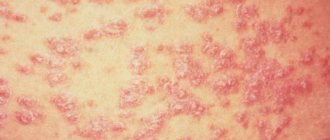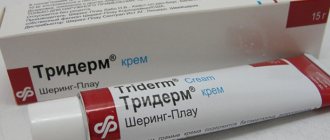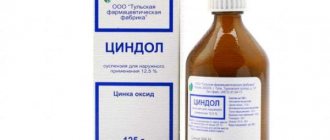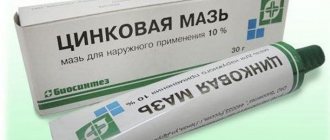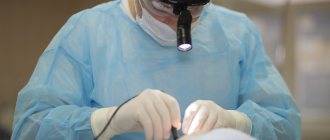Acne in adolescence is a common occurrence due to hormonal changes in the body. But if acne occurs in an older person, then pimples may indicate an imbalance. They are eliminated in such a situation with the help of specialized drugs.
These include oral contraceptives, which have two important actions for the female body - they protect against unwanted pregnancy and help cope with cosmetic defects such as acne. Will Jess help with acne?
Actions of oral contraceptives
Contraceptive drugs contain a combination of hormones that inhibit the ovulation process, that is, they prevent the release of an egg from the ovaries. In addition, they change the structure of the secretion of the cervical canal, it becomes denser, which prevents sperm from entering the uterus.
Their main task is related to this - preventing unwanted pregnancy. But there are certain contraceptives that have the property of blocking androgen receptors. They reduce the intensity of production of male sex hormones, including testosterone, in women’s bodies. It is these hormones that, as a rule, increase the activity of the sebaceous glands, which leads to the appearance of acne.
This group of oral contraceptives includes:
- "Jess."
- "Yarina."
- "Janine."
With their use, hormonal levels are stabilized, and rashes stop bothering the patient.
Rebound effect after drug withdrawal
The rebound effect in gynecology consists of temporarily “turning off” ovarian function followed by the abolition of COCs to achieve ovulation and increase the chances of pregnancy. After finishing taking COCs, the hormonal levels begin to recover, and in an enhanced form. As a result, superovulation occurs - two eggs mature and are capable of fertilization. Thus, the rebound effect is considered as one of the methods of treating infertility.
Stopping birth control pills usually does not cause unpleasant side effects, since the latest generation of pills minimize the risk of negative effects on the body. However, each woman's hormonal profile reacts differently, and each body needs time to recover.
Note!
During the period of taking COCs, as such, there is no classical menstruation, withdrawal bleeding is observed. Withdrawal bleeding occurs during the period when a woman does not take hormonal pills; it is less abundant and does not last long.
However, you should not be afraid of canceling COCs: physical activity, being under the supervision of a doctor, a balanced diet and positive emotions will help to quickly restore hormonal levels and return to a normal menstrual cycle.
Womenfirst
- Hormonal contraception. Prilepskaya, Mezhevitinova, Nazarova // Ed. V. Prilepskoy. – 2011. – 296 p.
- Modern contraception. New opportunities, safety criteria, basics of consulting. Podzolkova N.M., 2022. - 128 p.
- Drug therapy in the practice of an obstetrician-gynecologist. Pestrikova, Yurasova, Yurasov // Ed. N. Mitrokhina., 2011. - 512 p.
- Modern contraception. New opportunities and safety criteria: a guide for doctors. Podzolkova, Rogovskaya, Koloda // Ed. E. Bakalina - 2013. - 128 p.
RUS2175440 (v1.0)
Does Jess help with acne?
First of all, it should be noted that the drug is prescribed to adolescents and women in situations where they are sexually active, since the main purpose of this medication is contraception. Acne therapy is considered only a side effect of its use.
Therefore, you can use “Jess” only after consulting a gynecologist and having a blood test for hormone levels. The drug is prescribed only in the situation if it turns out that:
- The level of male hormones is increased.
- A girl or woman is worried about acne.
- At the same time, the representative of the fair half of humanity leads an active sex life.
- The woman is not planning a pregnancy.
If the patient has one goal - eliminating acne, then taking contraceptive medications is not recommended, since these are very strong drugs that have certain adverse reactions.
Therefore, before purchasing Jess birth control pills for acne, it is necessary to consult several medical specialists, for example, a dermatologist or gynecologist.
Compound
There are a large number of ointments, tablets and lotions available on the market that help reduce and eliminate acne and pimples.
But, despite the availability of drugs, self-medication is not recommended. Only specialists should prescribe drugs after a complete examination of the patient.
Hormonal drugs are most often prescribed after the age of 30 or in advanced cases of the disease. They have a positive effect on human hormonal levels and have a suppressive effect on the functioning of the sebaceous glands.
Jess is one of the most effective combined contraceptives. It is available in tablet form.
The main active component of the drug is ethinyl estradiol with excipients.
Advantages
"Jess" is a contraceptive for oral use that contains estrogen and gestagen, which inhibits the excessive production of testosterone, the male sex hormone. Positive reviews from medical specialists confirm not only its effectiveness, but also many other advantages compared to drugs with similar effects:
- The hormone content in the medication is as low as possible compared to generics, which helps to achieve a milder effect on the body and reduce the severity of side effects, while the effect of the oral contraceptive also remains at a high level.
- Eliminates acne of the second degree.
- Does not provoke weight gain.
- Improves the condition of the hair and nail plate.
- Stabilizes the regularity of menstruation, helps eliminate pain during periodic bleeding.
In addition, the drug “Jess Plus” is produced, the structure of which includes folic acid. They are intended for representatives of the fair half who plan to become pregnant immediately after stopping the drug, since folic acid is needed for the proper formation of the central nervous system of the unborn baby.
Myths and reality about COC withdrawal
- After discontinuation of COCs, the menstrual cycle is disrupted and menstruation may stop
A similar phenomenon can occur and be diagnosed by a doctor as ovarian hyperinhibition syndrome, expressed in the form of secondary amenorrhea.
- Pregnancy after discontinuation of COCs is impossible
This statement only partially makes sense. Indeed, after stopping the drugs, problems with conception may arise, especially with long-term use of COCs. However, in some cases, with a favorable outcome, such a problem resolves on its own against the backdrop of normalization of ovarian function.
- When taking COCs, depression and mood swings begin
Indeed, some women note worsening mood and the development of depression while using COCs.
How quickly does the drug work?
If acne appears while using Jess, this can happen in the first or third months of use, while the body is still adjusting to new hormones. Positive dynamics can be noted no earlier than the beginning of the second menstrual cycle, then the situation may improve until the rashes are completely eliminated.
The result of “Jesa” for acne occurs with the start of using the medicine (contraceptive effect), but positive changes in a woman’s appearance will be noticeable a little later, after the second or third menstruation.
After stopping taking Jess, acne may return as the previous hormonal levels are restored. That is, the drug helps against acne only with constant use.
Minuses
Like any other hormonal contraceptive, Jess acne pills have certain disadvantages that cannot be avoided. These are negative effects after taking a medicine that may not occur to everyone. They usually appear in the first months of using the drug, while the body gets used to the new regime:
- Dizziness.
- Headache.
- Change of mood.
- Irritability.
- Decreased sexual desire.
When do side effects go away? This happens differently for all people, but, as a rule, after the second or third menstruation, the woman’s well-being completely returns to normal and no unpleasant symptoms appear in the future.
In any situation, hormonal contraceptives should be used under the supervision of the medical specialist who prescribed them. And if you have any questions or doubts, you should contact him for advice.
Contraindications and side effects
Like any medicine, Jess has contraindications and side effects.
You should refrain from taking the drug if you have:
- migraine;
- thrombosis;
- elevated sugar levels;
- uterine bleeding;
- oncological diseases;
- any kind of tumor;
- kidney and liver disease;
- pregnancy and breastfeeding.
The drug is not prescribed to patients with impaired cardiovascular function.
You need to take the pills strictly at a certain time. Violation of the schedule may lead to the development of side effects.
While taking it, the following phenomena may be observed:
- Increased skin rashes, acne.
- Severe headaches, nausea, vomiting.
- Irritability, mood swings, nervous breakdowns, depression.
- Blood pressure disorder.
- The appearance of varicose veins.
- Pain in the heart area.
- Women may experience bleeding.
An overdose of the drug can lead to a decrease in libido.
Starting and skipping pills
If a woman has not used any other contraceptive drugs in the past month, then the use of “Jess” begins on the first day of menstruation. It is allowed to take the medication on the second day of the menstrual cycle, but in this situation it is already necessary to additionally use condoms during the first seven days of taking the medicine from the first package.
If an inactive pill was missed, this point can be ignored. However, they must be thrown away to avoid accidentally prolonging their use.
If the delay in taking the active tablet is less than twelve hours, then the protection is not reduced. A woman should take the missed tablet as quickly as possible and take the next one as usual.
If the delay is more than twelve hours, then contraceptive protection may be slightly reduced. The more pills a woman has missed and the closer the skip is to the inactive phase, the greater the likelihood of pregnancy. In this case, you must be guided by the following rules:
- the use of the medication should never be interrupted for more than four days;
- To achieve a stable contraceptive effect, approximately seven days of continuous use of the drug are required.
How to use "Jess"
There are twenty-eight tablets in total in the package. The blister contains graphic marks that indicate the order in which they should be taken. It is necessary to take 1 tablet per day at the same time with water.
Doctors advise using oral contraceptives in the morning. Of all the tablets, twenty-four are considered active, and four are considered inactive, that is, a placebo (a substance without obvious medicinal properties). They are necessary so as not to get lost in the order of using this drug.
Each subsequent package should be started only after the previous one has been completed, without allowing breaks. Bleeding similar to menstruation may occur while using inactive tablets. How long does it take for Jess Plus to have an effect on acne? Positive dynamics can be noted seven days after the start of therapy, after which time the contraceptive effect appears.
Analogs
Analogues of the drug Jess are: Yarina, Jess Plus, Dimia, Midiana. Dimia belongs to the category of contraceptives with similar active ingredients. Its main difference from Jess is the lower price of the first drug.
Analogs include the drug Qlaira. It is prescribed to women who have high estrogen levels. In this regard, it is not prescribed to young girls, but only to older women.
A cheaper analogue of Jess is Regulon. Side effects and contraindications for both types of drugs are similar.
Restrictions
The use of the drug "Jess" is contraindicated in the following situations:
- Myocardial infarction (ischemic heart disease, which occurs with the appearance of ischemic necrosis).
- Angina pectoris (a disease characterized by an unpleasant sensation in the chest).
- Thrombosis (formation of clots inside blood vessels).
- Damage to cerebral vessels.
- Diabetes mellitus (an endocrine disease characterized by improper absorption of glucose).
- High blood pressure.
- Pancreatitis (inflammation of the pancreas).
- Migraine (a neurological disease characterized by pain in the head).
- Damage to the liver and kidneys.
- Lactation.
- Smoking over the age of thirty-five.
- Malignant tumors of the genital organs or mammary glands.
Before using the medication, it is necessary to exclude conditions in the body that limit its use. To do this, it is enough to donate blood for analysis.
Is it possible to smoke while using the drug?
Smoking while taking the medication increases the risk of arterial thromboembolism. This is a condition characterized by loss or confusion of consciousness, as well as severe weakness or fainting. It can cause death. The occurrence of thromboembolism is higher the more cigarettes a representative of the fair half smokes per day.
The risk group includes women over thirty-five years of age who smoke more than one pack of cigarettes per day. For women under this age or who smoke a small amount of cigarettes, there is no direct contraindication in this regard. If acne appears from “Jess”, what should you do?
Alcohol and Jess
When taking the drug and alcoholic drinks, women are afraid that the effect of the pills may be reduced. Medical experts note that alcohol in small dosages does not reduce the contraceptive effect of the drug.
But when using oral tablets, it is forbidden to take excessive amounts of strong drinks. In case of alcohol poisoning, it is necessary to additionally use other contraceptives.
Responses
On the Internet you can find many reviews about “Jess” for acne. As a rule, representatives of the fair half evaluate this oral contraceptive positively. But there are also reviews of birth control pills from people for whom this medication was not suitable.
As a result, the oral contraceptive caused adverse reactions, including nausea, malaise, and migraines. In such a situation, doctors tried to find another, more suitable medication for women.
According to doctors' reviews of Jess for acne, it is known that the drug has a beneficial effect on the body. Opinions about the drug on various sites also say that the drug helps get rid of acne and improves skin condition.
After stopping taking the oral contraceptive, the body’s condition does not worsen, so many women respond well to this drug.
Reviews of “Jess” for acne are usually positive; adverse reactions when using it occur very rarely. Representatives of the fair half also have a positive opinion about the contraceptive. The ease of use of Jess Plus and its effectiveness are noted. But in rare situations, nausea, headaches, and mood swings still appear.
Jess® Plus (Yaz® Plus)
If any of the conditions, diseases and risk factors listed below currently exist, the potential risks and expected benefits of using Jess® Plus should be carefully weighed in each individual case and discussed with the woman before she decides to start taking of this drug.
For disorders of the cardiovascular system
The results of epidemiological studies indicate a relationship between the use of COCs and an increased incidence of venous and arterial thrombosis and thromboembolism (such as deep vein thrombosis, pulmonary embolism, myocardial infarction, cerebrovascular disorders) when taking COCs. These diseases are rare.
The risk of developing VTE is greatest in the first year of taking COCs. An increased risk is present after initial use of a COC or resumption of use of the same or a different COC (after a dosing interval of 4 weeks or more). Data from a large prospective study involving 3 groups of patients indicate that this increased risk is predominantly present during the first 3 months.
The overall risk of VTE in women taking low-dose COCs (<0.05 mg ethinyl estradiol) is two to three times higher than in non-pregnant patients not taking COCs, although this risk remains lower than the risk of VTE during pregnancy and childbirth.
VTE can be life-threatening or lead to death (in 1-2% of cases).
VTE, manifested as deep vein thrombosis or pulmonary embolism, can occur with the use of any COC.
It is extremely rare when using COCs that thrombosis of other blood vessels occurs, for example, hepatic, mesenteric, renal, cerebral veins and arteries or retinal vessels.
Symptoms of deep vein thrombosis: unilateral swelling of the lower extremity or along a vein in the lower extremity, pain or discomfort in the lower extremity only in an upright position or when walking, local increase in temperature in the affected lower extremity, redness or discoloration of the skin on the lower extremity.
Symptoms of pulmonary embolism: difficulty or rapid breathing; sudden cough, including with hemoptysis; sharp pain in the chest, which may intensify with deep inspiration; sense of anxiety; severe dizziness; fast or irregular heartbeat. Some of these symptoms (eg, shortness of breath, cough) are nonspecific and may be misinterpreted as signs of other more common and less severe conditions (eg, respiratory tract infection).
Arterial thromboembolism can lead to stroke, vascular occlusion, or myocardial infarction. Symptoms of a stroke include: sudden weakness or loss of sensation in the face or limbs, especially on one side of the body, sudden confusion, problems with speech and comprehension; sudden unilateral or bilateral vision loss; sudden disturbance in gait, dizziness, loss of balance or coordination; sudden, severe or prolonged headache for no apparent reason; loss of consciousness or fainting with or without convulsions. Other signs of vascular occlusion: sudden pain, swelling and slight cyanosis of the extremities, “acute” abdomen.
Symptoms of myocardial infarction: pain, discomfort, pressure, heaviness, a feeling of compression or fullness in the chest or behind the sternum, radiating to the back, jaw, left upper limb, epigastric region; cold sweat, nausea, vomiting or dizziness, severe weakness, anxiety or shortness of breath; fast or irregular heartbeat. Arterial thromboembolism can be life-threatening or fatal.
In women with a combination of several risk factors or high severity of one of them (for example, complicated heart valve diseases, uncontrolled arterial hypertension, extensive surgical interventions with prolonged immobilization, etc.), the possibility of their mutual reinforcement should be considered. In such cases, the total value of the existing risk factors increases. In this case, taking Jess® Plus is contraindicated (see section “Contraindications”),
The risk of developing thrombosis (venous and/or arterial), thromboembolism or cerebrovascular disorders increases:
- with age;
- in smokers (with an increase in the number of cigarettes or an increase in age, the risk increases, especially in women over 35 years old);
in the presence of:
— obesity (body mass index more than 30 kg/m2);
- family history (for example, venous or arterial thromboembolism ever in close relatives or parents under the age of 50 years). In the case of a hereditary or acquired predisposition, the woman should be examined by an appropriate specialist to decide on the possibility of taking the drug Jess® Plus;
- prolonged immobilization, extensive surgery, any operation on the lower extremities or major trauma. In these situations, it is necessary to stop taking Jess® Plus (in the case of a planned operation at least four weeks before it) and not to resume taking it for two weeks after the end of immobilization. Temporary immobilization (eg, air travel lasting more than 4 hours) may also be a risk factor for the development of venous thromboembolism, especially in the presence of other risk factors;
- dislipoproteinemia;
- arterial hypertension;
- migraine;
— diseases of the heart valves;
- atrial fibrillation.
The use of any combined hormonal contraceptives increases the risk of developing VTE.
The use of drugs containing levonorgestrel, norgestimate or norethisterone carries the lowest risk of developing VTE. The use of other drugs, such as Jess® Plus, can lead to a twofold increase in risk. The choice to use a COC with a higher risk of developing VTE can only be made after consultation with the patient to ensure that she fully understands the risk of VTE associated with the use of Jess® Plus, the effect of the drug on her existing risk factors and that The risk of developing VTE is greatest during the first year of using the drug. According to some data, an increased risk is observed when COC use is resumed after a break of 4 weeks or more.
About 9-12 out of 10,000 women taking COCs containing drospirenone may develop VTE within a year, compared with about 6 in 10,000 women for COCs containing levonorgestrel.
The possible role of varicose veins and superficial thrombophlebitis in the development of VTE remains controversial.
The increased risk of thromboembolism in the postpartum period should be taken into account. Peripheral circulatory disorders may also occur in diabetes mellitus, systemic lupus erythematosus, hemolytic uremic syndrome, chronic inflammatory bowel disease (Crohn's disease or ulcerative colitis) and sickle cell anemia.
An increase in the frequency and severity of migraine during use of the drug Jess® Plus (which may precede cerebrovascular disorders) is grounds for immediate discontinuation of the drug.
Biochemical indicators indicating a hereditary or acquired predisposition to venous or arterial thrombosis include: resistance to activated protein C, hyperhomocysteinemia, antithrombin III deficiency, protein C deficiency, protein S deficiency, antiphospholipid antibodies (anticardiolipin antibodies, lupus anticoagulant).
When assessing the risk-benefit ratio, it should be taken into account that adequate treatment of the relevant condition can reduce the associated risk of thrombosis. It should also be taken into account that the risk of thrombosis and thromboembolism during pregnancy is higher than when taking low-dose oral contraceptives (<0.05 mg ethinyl estradiol).
Tumors
The most significant risk factor for developing cervical cancer is persistent human papillomavirus infection. There are reports of a slight increase in the risk of developing cervical cancer with long-term use of COCs. However, the connection with taking COCs has not been proven. The possibility of the relationship of these data with screening for cervical diseases and with characteristics of sexual behavior (less frequent use of barrier methods of contraception) is discussed.
A meta-analysis of 54 epidemiological studies showed that there is a slightly increased relative risk of developing breast cancer diagnosed in women currently taking COCs (relative risk 1.24). The increased risk gradually disappears within 10 years of stopping these drugs. Because breast cancer is rare in women under 40 years of age, the increase in breast cancer diagnoses in current or recent COC users is small relative to the overall risk of breast cancer. Its connection with COC use has not been proven. The observed increased risk may be a consequence of careful monitoring and earlier diagnosis of breast cancer in women using COCs, the biological effects of sex hormones, or a combination of both factors. Women who have ever used COCs are diagnosed with earlier stages of breast cancer than women who have never used them.
In rare cases, during the use of COCs, the development of benign, and in extremely rare cases, malignant liver tumors, which in some patients led to life-threatening intra-abdominal bleeding, was observed. If severe abdominal pain, liver enlargement, or signs of intra-abdominal bleeding occur, this should be taken into account when making a differential diagnosis.
Other states
Clinical studies have shown no effect of drospirenone on the concentration of potassium in the blood plasma of patients with mild to moderate renal failure. However, in patients with impaired renal function and an initial potassium concentration at the upper limit of normal, the risk of developing hyperkalemia cannot be excluded while taking medications that lead to potassium retention in the body.
Women with hypertriglyceridemia (or a family history of this condition) may have an increased risk of developing pancreatitis while taking COCs. Although slight increases in blood pressure (BP) have been described in many women taking COCs, clinically significant increases have rarely been reported. However, if a persistent clinically significant increase in blood pressure develops while taking Jess® Plus, this drug should be discontinued and treatment of arterial hypertension should be started. The drug can be continued if normal blood pressure values are achieved with the help of antihypertensive therapy.
The following conditions have been reported to develop or worsen both during pregnancy and while taking COCs, but their relationship with COC use has not been proven: jaundice and/or pruritus associated with cholestasis; formation of gallstones; porphyria; systemic lupus erythematosus; hemolytic-uremic syndrome; chorea; herpes during pregnancy; hearing loss associated with otosclerosis. Cases of worsening the course of endogenous depression, epilepsy, Crohn's disease and ulcerative colitis during the use of COCs have also been described.
In women with hereditary forms of angioedema, exogenous estrogens may cause or worsen symptoms of angioedema.
Acute or chronic liver dysfunction may require discontinuation of Jess® Plus until liver function tests return to normal. Recurrence of cholestatic jaundice, which developed for the first time during a previous pregnancy or previous use of sex hormones, requires discontinuation of the drug Jess® Plus.
Although COCs may have an effect on insulin resistance and glucose tolerance, there is usually no need to adjust the dose of hypoglycemic drugs in patients with diabetes mellitus using low-dose oral contraceptives (<0.05 mg ethinyl estradiol). However, women with diabetes mellitus should be carefully monitored while taking COCs.
Chloasma can sometimes develop, especially in women with a history of chloasma during pregnancy. Women with a tendency to chloasma while taking Jess® Plus should avoid prolonged exposure to the sun and exposure to ultraviolet radiation.
Folates may mask vitamin B12 deficiency.
Laboratory tests
Taking Jess® Plus may affect the results of some laboratory tests, including indicators of liver, kidney, thyroid, adrenal function, the concentration of transport proteins in plasma, indicators of carbohydrate metabolism, parameters of blood coagulation and fibrinolysis. Changes usually do not go beyond normal values. Drospirenone increases plasma renin activity and aldosterone concentrations, which is associated with its antimineralocorticoid effect.
Reduced efficiency
The contraceptive effectiveness of Jess® Plus may be reduced in the following cases: when pink pills are missed, gastrointestinal disorders while taking pink pills, or as a result of drug interactions.
Frequency and severity of menstrual-like bleeding
While taking Jess® Plus during the first few months, irregular (acyclic) bleeding from the vagina may be observed (“spotting” spotting and/or “breakthrough” uterine bleeding). You should use hygiene products and continue taking your pills as usual. Any irregular bleeding should be assessed after an adaptation period of approximately 3 cycles of dosing.
If irregular bleeding recurs or develops after previous regular cycles, careful evaluation should be performed to rule out malignancy or pregnancy.
No regular menstrual bleeding
Some women may not develop bleeding while taking the supplementary light orange tablets; “ooContraindications” and “Use with caution”;
— Local compaction in the mammary gland;
- Concomitant use of other medications (see also section “Interaction with other medications and other types of interactions”);
- If prolonged immobility is expected (for example, a cast is applied to the lower limb), hospitalization or surgery is planned (at least 4 weeks before the proposed operation);
- Unusually heavy bleeding from the vagina;
- Missed a pill in the first week of taking the package and had sexual intercourse seven days or less before;
— Absence of regular menstrual-like bleeding two times in a row or suspicion of pregnancy (you should not start taking pills from the next package before consulting your doctor).
You should stop taking the tablets and consult your doctor immediately if there are possible signs of thrombosis, myocardial infarction or stroke: unusual cough; unusually severe pain behind the sternum, radiating to the left arm; unexpected shortness of breath, unusual, severe and prolonged headache or migraine attack; partial or complete loss of vision or double vision; slurred speech; sudden changes in hearing, smell, or taste; dizziness or fainting; weakness or loss of sensation in any part of the body; severe abdominal pain; severe pain in the lower limb or sudden swelling of any of the lower limbs.




